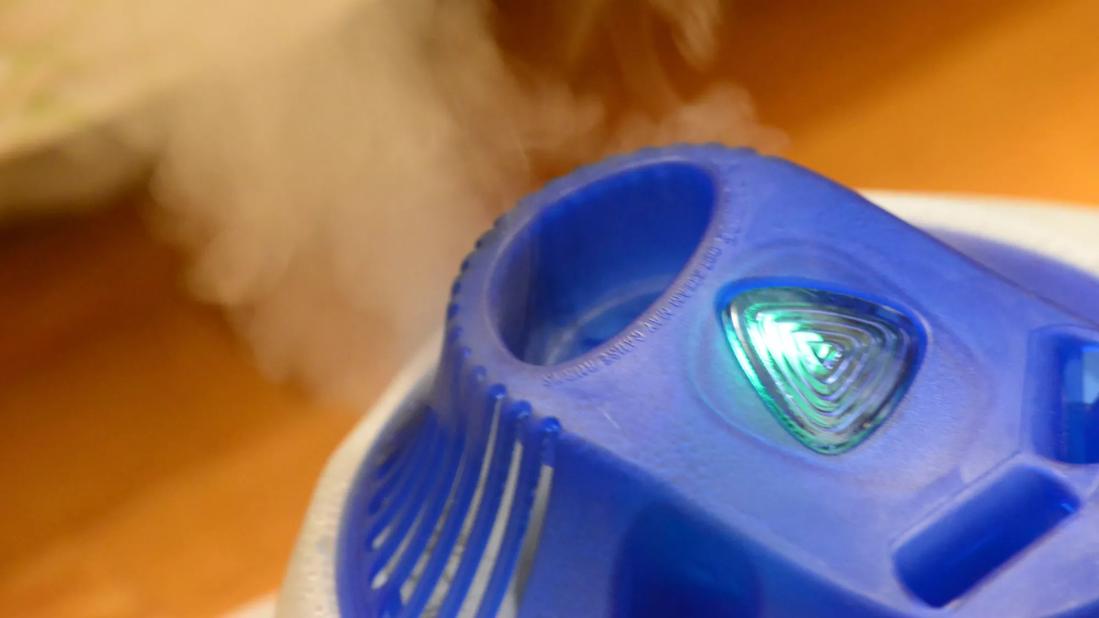Tips for protecting yourself from common illnesses

Image content: This image is available to view online.
View image online (https://assets.clevelandclinic.org/transform/a68e9738-c07e-4cbb-aa18-744aa2444535/humidifier-iStock_000051585238_Large-1-scaled_jpg)
How You Can Best Combat the Effects of Dry Winter Air
Few aspects of colder weather months can be as irritating as dry winter air. (Well, maybe when your snow plow service doesn’t show up!) From fly-away hair to scaly skin, the cold winter air can wreak havoc on your body’s appearance. But did you know that dry winter air also can make you vulnerable to illness?
Advertisement
Cleveland Clinic is a non-profit academic medical center. Advertising on our site helps support our mission. We do not endorse non-Cleveland Clinic products or services. Policy
Breathing dry air can cause respiratory ailments such as asthma, bronchitis, sinusitis and nosebleeds. Breathing dry air also can cause dehydration since body fluids are depleted during respiration.
“Your sinuses will dry out,” says family medicine physician Daniel Allan, MD. “The mucus that normally should be gooey and thick and can trap infection gets drier. So you’re more likely to get a cold because your mucus is not as able to catch things that you breathe in.”
Cold winter air is dry because it holds less moisture than warm air. Because wintertime humidity is so low, what little moisture that is around is quickly sucked up into the air. So moisture evaporates more quickly from your body, which dries out your skin, makes a desert of the inside of your nose and leaves your throat parched.
What’s worse is that the furnaces that heat our homes can contribute to the problem by pumping our houses full of hot, dry air.
One way to combat the dryness is to add a humidifier — either for the whole home or within certain rooms. Another effective way to add moisture to the air is to place large bowls of water around the home. The water evaporates and adds moisture.
Home humidity levels should be somewhere between 30% and 50%, Dr. Allan says. Don’t overdo the humidity. Too much can cause mold growth and encourage dust and possibly cause respiratory issues, he says.
Advertisement
If you’re already someone who is prone toward dehydration (we mean you with the dry, flaky, itchy winter skin), Dr. Allan recommends a few simple steps.
“Increasing your fluid intake is always good,” Dr. Allan says. “The other way to treat it from the inside is to take omega-3 supplements. That can help normalize the fat in your skin cells, which helps keep the moisture trapped, and helps keep the oils on the surface of your skin.”
Other tips for guarding against dry winter skin include:
Advertisement

Sign up for our Health Essentials emails for expert guidance on nutrition, fitness, sleep, skin care and more.
Learn more about our editorial process.
Advertisement
Here's when to see a doctor about that persistent cough
7 ways to calm your cough
A distressed skin barrier can lead to red, itchy and scaly skin
If the flakes are undisturbed, pristine white and come from the top layer, it’s typically safe to indulge in a scoop
Indoor allergens know no season!
Seek help if bleeding doesn’t stop or they’re interfering with your life
Sit straight up, apply pressure, be patient — and don’t stuff it
Cozying up with friends and family can make cold, dark days more meaningful
Type 2 diabetes isn’t inevitable with these dietary changes
Applying a hot or cold compress can help with pain
Pump up your iron intake with foods like tuna, tofu and turkey